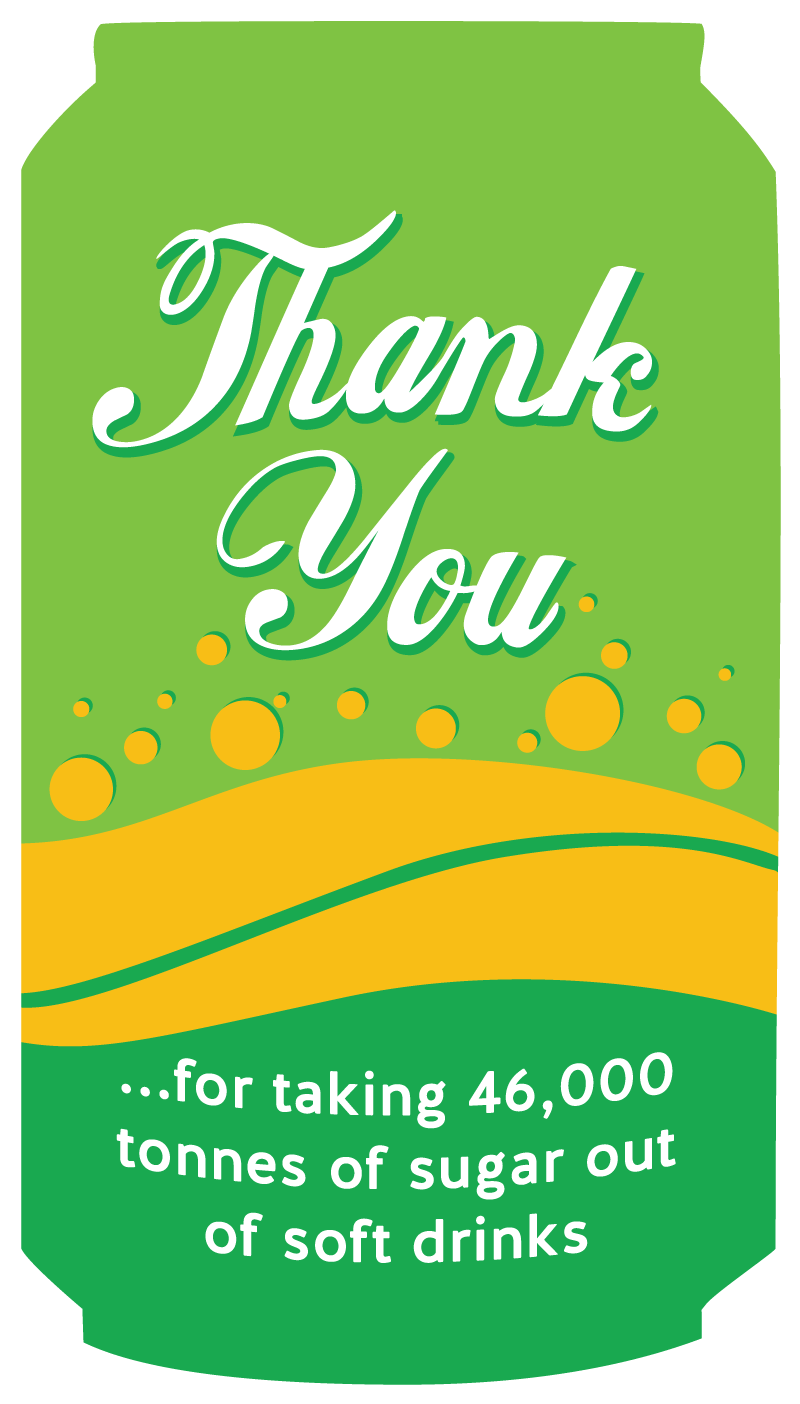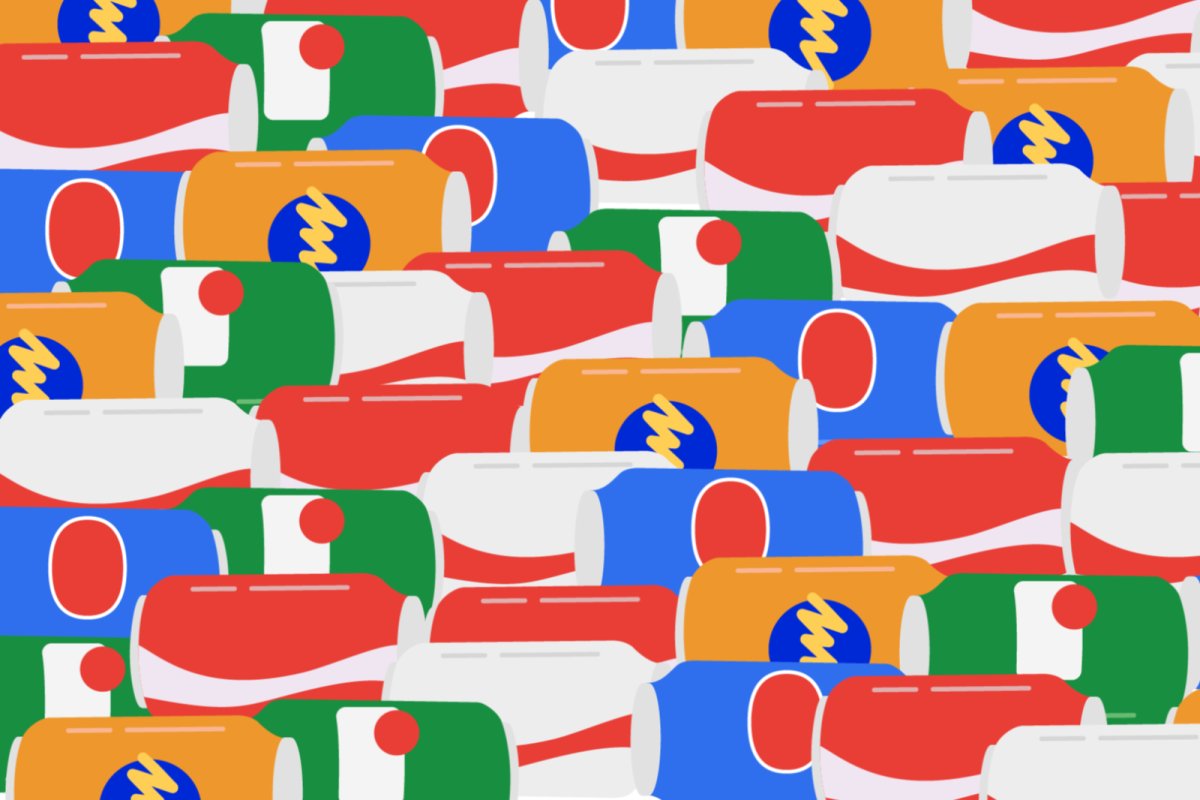1) From the beginning…where were you when you heard the Soft Drinks Industry Levy announcement?
‘In this budget we choose the long-term, we choose to put the next generation first…’
Kat - 7 years ago in March 2016, whilst I was enjoying my maternity leave, I heard George Osborne confidently state those words, and then popped this rabbit out of his hat:
‘…Today I can announce that we will introduce a new sugar levy on the soft drinks industry. We are going to use the money from this new levy to double the amount of funding we dedicate to sport in every primary school.’
Ben – It was quite a moment! We got a call from Jamie Oliver’s team who we’d been working closely with over the previous year, who themselves had only just heard about an hour before the announcement. They said ‘are you sitting down, you’re not going to believe this…’
Two years later, legislated through the Finance Act 2017, implemented via the Soft Drinks Industry Levy Regulations 2018, and the Soft Drinks Industry Levy came into force. However, from the moment it was announced, the landscape completely changed, not just for soft drinks but for campaigning on dietary health.
2) What was the initial reaction to the levy?
Ben - The Daily Mail were ‘shocked’, the BBC said it was ‘bold’, and soft drinks makers considered suing the government. Complaints levelled at the levy were that it was overly interventionist, that it would harm business, that it wouldn’t work, that costs would be passed on to customers making it regressive. History has exposed these fears as largely unfounded – not to say it has been perfect, but the impact has been in many ways greater than expected, due to its clever design.
Kat - In the preceding years, public health experts, researchers, high-profile campaigners and Public Health England, had identified that the then current high levels of sugar in children and adolescents’ diets, coming from soft drinks – the largest contributor of sugar in their diets - was harming their health and that drastic action was needed. Some soft drinks manufacturers were waking up to the problem, with Tesco committing to reducing the sugar across all of its range by 5%, and Pepsi committing to only marketing its sugar free ranges, however this was never going to be enough.
The threat of the levy coming into force accelerated action, and it was during this two-year period that most of the reformulation we now see occurred. Since then, innovative new lower sugar products have been coming on to the market, avoiding the levy.

3) So, five years on – what has been the impact?
Kat - The tiered structure targeted the highest-sugar brands, incentivising significant sugar reductions, and in some cases, complete sugar replacement. Sweeteners made reformulation relatively simple and affordable for manufacturers, and as these newly changed products were flavour matched to their predecessors, they were acceptable to (most of!) the public. As a result, most of the impact of the Levy was primarily through reformulation, rather than behaviour change.
We have seen the total sugar sold in soft drinks go down by 35.4%, taking down the sales-weighted average sugar content from 5.7g% to 2.2g%. In other words - the SDIL has removed 46 million kgs of sugar from the nation’s diet - every year. Also total soft drinks sales increased by 14.9% between 2015 and 2019, predominantly of drinks that don’t pay the levy. Simply put - they're just selling healthier drinks instead. On top of this, there’s been an 8% relative reduction in obesity levels in 10/11 year old girls, especially in the most deprived areas, as demonstrated by recent research from Dr Nina Rogers and her Cambridge University team. Or - about 5200 fewer cases per year of obesity than trends had otherwise predicted.
Ben – And let’s not forget, the impact is not just seen here. Currently, at least 85 countries implement some type of sugary drinks taxation. In 2022, WHO released its first-ever global tax manual for sugar-sweetened beverages (SSBs), highlighting the experiences of countries who have successfully implemented the tax, including Mexico, South Africa, and of course, the United Kingdom.
4) Why do you think Treasury hasn’t looked to increase the thresholds which are taxed?
Ben - The levy hasn’t been uprated since its introduction i.e. the amount or cost of the levy hasn’t changed. Nor has the entry threshold ever been revised downwards to bring it into line with the Nutrient Profiling Model’s application in soft drinks. The latter measure alone could have delivered an additional estimated £50 million per year in revenues in the first year - which alone could triple investment in, and therefore the reach of, the National School Breakfast Programme, for example. However, first the pandemic and now the cost-of-living crisis have created a difficult political and industry climate for the Treasury to increase rates or upgrade thresholds to incentivise further reformulation.
Kat – There has always been the potential to extend to milk-based drinks. In fact it was clearly stated, maybe more accurately ‘threatened’, when SDIL was announced, that if those drinks weren’t reformulated they would be included in the Levy. Funnily enough this worked, and outside of the Levy, milk-based drinks have seen the greatest reformulation, where voluntary efforts in other categories have paled in comparison. If there’s no real stick, then voluntary efforts by industry to change behaviour rarely work.
The levy’s mere existence is also still a sore point for some politicians, with its precariousness exposed last Autumn when Liz Truss threatened to axe the Soft Drinks Industry Levy as ‘an unnecessary piece of industry red-tape'. However, as a former Health Secretary, the new Chancellor of the Exchequer Jeremy Hunt has got a better understanding of the positive impact it has had, as well as the need to have continued sources of revenues for investment in children’s health.
5) If this has been so impactful, why aren’t the Government looking to expand it to other products?
Ben - This is purely down to a lack of political appetite to further regulate the food industry, and a hope that the population magically gets healthier without any intervention – an approach that has clearly worked so well to date (not)! They are not short of different options. Henry Dimbleby put forward a well worked case on the benefits of a broad sugar and salt tax in the National Food Strategy, and more evidence is coming through on the impact of something more targeted on unhealthy products like cakes, biscuits and confectionery.
Crucially the public support is there – with a recent Yougov poll [1] we did with the Obesity Health Alliance showing 61% of the public are supportive of the Government expanding this model of industry levies to other food and drink items that contain high levels of sugar, salt and/or fat, if the money raised went to children’s health programmes.
Kat - And this was another area of success with the Soft Drinks Industry Levy, with over £1.5billion raised in the last 5 years, going to primary school sports & PE premiums, the National School Breakfast Programme and the Holiday Activity and Food programme. These are vital services benefiting those on the lowest incomes during a cost-of-living crisis.
6) What do you think the likelihood of this appearing in the manifestos is? Are any parties going to want to commit to this ahead of an election?
Kat - This is widely stated as a win-win policy for both public health and industry, the majority of adults support it across the UK – consumers are telling business they want help to eat and drink healthily. If any political party is serious about improving children’s health – and if they are serious about putting forward fully costed plans for turning around the health of this country - there’s no way they can ignore these policy options when they form the next Government following the 2024 election.
Ben - Working together with colleagues at Sustain, the Food Foundation, the Obesity Health Alliance, Impact on Urban Health, British Heart Foundation, Action on Salt and Sugar, leading researchers and many others, we are exploring the potential for further fiscal levers in support of healthier food and drink, such as extending to other categories of food, or the salt and sugar reformulation levy, and what impact these might have in future, who would benefit most, and what the public would support. We’d welcome hearing from anyone who wants to get involved in exploring these options.
[1] YouGov Plc. Total sample size was 5,232 adults. Fieldwork was undertaken between 7th - 11th December 2022.
Children's Food Campaign: Better food and food teaching for children in schools, and protection of children from junk food marketing are the aims of Sustain's high-profile Children's Food Campaign. We also want clear food labelling that can be understood by everyone, including children.








